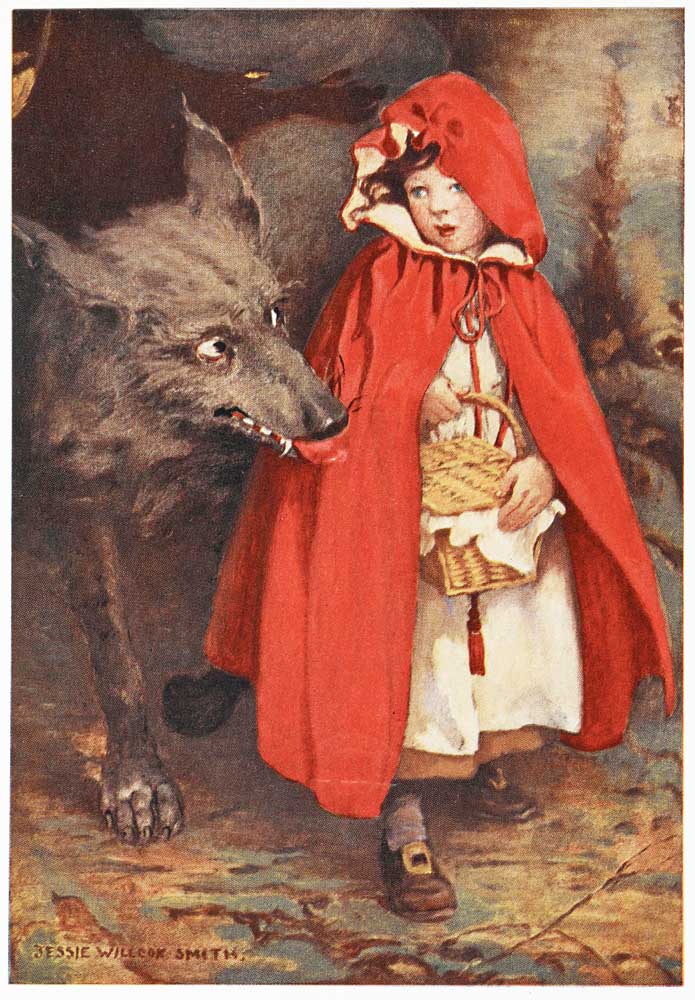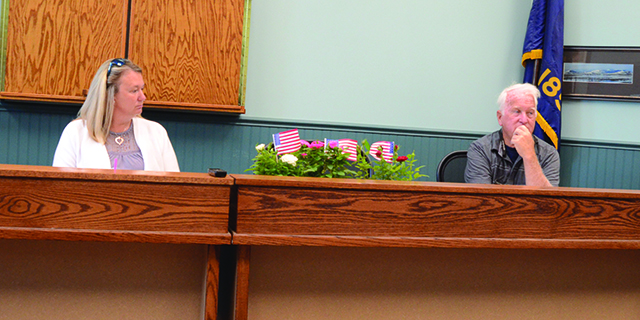Voice of Chieftain Little Red Riding Hood
Published 8:25 am Tuesday, May 12, 2020

- Little Red Riding Hood and the wolf.
We are all pulling at our tethers. Fettered, hobbled, and haltered by the coronavirus, we are beginning to rear back against our restraints. The sun is shining, the grass is green. Winter is past. We yearn to be free. We pray for a return to “normal.” In the space of two months our lives have changed into a sort of fairy tale, and not a good one. We want to share our lives, our meals, and our joys with loved ones. But there is a wolf outside our door.
Just as we wish to do, Little Red Riding Hood set off on a mission to help her ailing grandmother, to bring food and companionship to a frail loved one. Along the way, she met a wolf who beguilingly distracted her, suggesting she pick flowers and take those to her grandmother, too. Little Red Riding Hood did not recognize the danger the wolf presented. And so while she was picking a nice bouquet, the wolf ran ahead, ate her grandmother, dressed in her clothes and climbed into her bed to await the girl’s arrival.
When the girl arrived at the cabin with food and flowers, the awkwardly disguised wolf lay in wait. Little Red Riding Hood repeatedly observed things that were suspicious: What big ears you have. What big eyes you have. But she failed to recognize the threat, and although she questioned the unusual visage of her “grandmother” she continued to ignore the clear evidence of a threat, recognizing only what she expected to see in a normal world—a grandmother—and not the wolf. What long whiskers you have. What big hands you have; and finally, of course, what big teeth you have. At which point the wolf revealed his true nature and gobbled her up.
We face equal peril. Like the compassionate and well-meaning girl in the story, we want to help our neighbors, our family, and our community. We want to see them prosper. But in a tourism-based economy, we cannot bear the whole burden of community prosperity on our own.
We have already seen out-of-state plates, people posing in front of statues in Joseph, and people heading into the store in maskless splendor from their Washington or Idaho or Utah plated vehicles. We are torn between embracing them and rejecting them, even running away. They seem friendly enough, but they might have invisible whiskers, big ears, and, yes, big teeth.
Like the wolf, COVID-19 has no intention of mercy. Wise medical minds have warned us of a second wave in the fall. Physicians have pointed out that isolation and social distance are essential to halt the spread. We are learning that children are susceptible to insidious variations of the disease, and that COVID-19 strikes at much more than just our lungs. We know this disease is remarkably contagious.
Phased opening is the most logical and strategic way to go. It lets us check the whiskers, the nose, and the ears before we notice how big Grandma’s teeth are. Had Little Red Riding Hood taken heed of the signs that all was not “normal,” she would have avoided being devoured.
We can too. But it requires self-discipline. Following the governor’s guidelines for opening will let us recognize any resurgence of the wolf, whether whiskers, ears, or even teeth. In the end, it’s the best way to ensure community prosperity.









